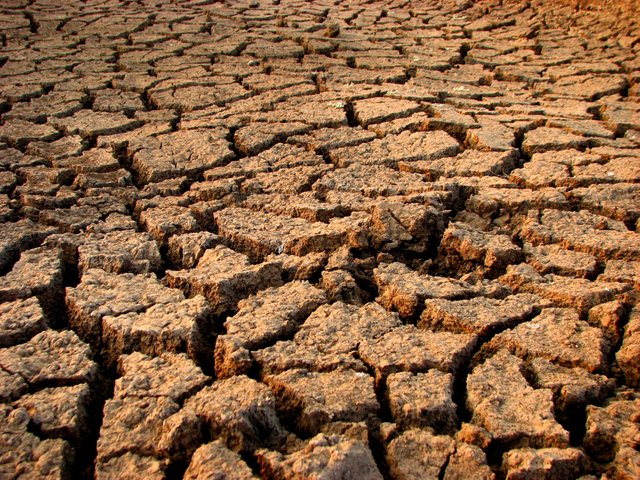Challenge #02622-G065: One More Lesson

The Great Chinese Famine (from Wikipedia)
"I went to one village and saw 100 corpses, then another village and another 100 corpses. No one paid attention to them. People said that dogs were eating the bodies. Not true, I said. The dogs had long ago been eaten by the people."
(Yu Dehong, secretary of a party official in Xinyang in 1959 and 1960)
It is widely believed that the government seriously under-reported death tolls: Lu Baoguo, a Xinhua reporter in Xinyang, told Yang Jisheng of why he never reported on his experience:
"In the second half of 1959, I took a long-distance bus from Xinyang to Luoshan and Gushi. Out of the window, I saw one corpse after another in the ditches. On the bus, no one dared to mention the dead. In one county, Guangshan, one-third of the people had died. Although there were dead people everywhere, the local leaders enjoyed good meals and fine liquor. ... I had seen people who had told the truth being destroyed. Did I dare to write it?" -- Anon Guest
If you wish to judge a society, measure it by how it treats those most in need. -- Ancient Terran Saying.
By all accounts, it should have happened to a Greater Deregulation. That was where the unofficial bets had been lain. If anything of the ilk was likely to happen, it had to happen to a Greater Deregulation. What it actually happened to was an otherwise unassuming Human colony that had initially been planned to create a stable, self-sustaining colony in the image of the origin polity's ideals. Alas, like all ideals, they could become corrupted over time.
This particular colony had failed to learn its lessons from the failure of the industrial farming model, and doubled down on chemicals, polluting the water, and otherwise creating problems with non-profitable solutions[1]. What was shocking was that nobody knew about the disastrous, planet-wide famine until the very worst of it had left the wealthy bereft of people to use or blame. By then, billions were dead.
The planet known as Keystone had followed the historical mistake of tying prosperity to virtue, and therefore poverty to moral failure. Those without obviously deserved to go without because they had failed to gain the reigning deity's favour. It was obvious illogic. Deities were all-powerful and all-knowing. They had to know the sins of the failures and the virtues of the successful. When disaster occurred, it hit the impoverished the worst, therefore it was the deity's judgement against their sins.
Therefore, when disease, mould, and bacterial infestations finally outpaced the combined forces of chemical control, gengineering, and other technologies... the overworked, overstressed, and underpaid were the ones to suffer first and, because of sociological judgement, the worst. They were already seen as lazy, unintelligent, and otherwise undeserving, so help was delayed or conditional until such time as worker availability became expensively scarce.
At no time did the wealthy suffer, at this point. Beyond that point was the new story. This time, the privileged had lost so much track of the pulse of Keystone's operations that they allowed the help to be delayed to the point beyond that in which it could be useful. Without a workforce to create supplies, the wealthy ran out of resources as well.
By then, the administration had been heartily denying that there even was a problem during the entire event. Now that the problem was starting to effect those in charge, now that it was almost too late to save the world. When help arrived, the surviving poor were killing and literally eating the rich just to survive. The fields were not only fallow but also poisoned by the acts of the previous centuries. Most of the surface of the planet was in a state of ruin. The only places remaining capable of growing anything were the estates of the affluent, and most of them were growing decorative plants. Some inspired desperation had hastily converted some lawns into gardens, but the effort was lacking basic knowledge of gardening.
When aid came, it was those with wealth who persisted in attempting to prevent it from reaching the most in need, claiming their affluence as the reason why they should have greater assistance. They didn't quite grasp that the rest of the Alliance had moved beyond simple economic superiority as a value of worthiness.
They were more than shocked to find themselves incarcerated for crimes against cogniscent life. They were even more shocked to find that a majority of the aid was going towards helping those who had barely weathered the crisis. Many never understood that the horrors that occurred during the famine were preventable... or that they were being judged for their inability to do so.
Billions dead through the folly of the few. The few who refused to learn from the multiple lessons of history.
[1] That is, solutions that were not profitable for the on-planet corporations responsible for manufacturing the chemicals and polluting the water.
[Image (c) Can Stock Photo / thefinalmiracle]
If you like my stories, please Check out my blog and Follow me. Or share them with your friends!
Send me a prompt [82 remaining prompts!]
And now the question is do the shocked ones ever figure it out or do they keep denying to the bitter end? O_o
Well, given the current state of affairs...
...probably not?